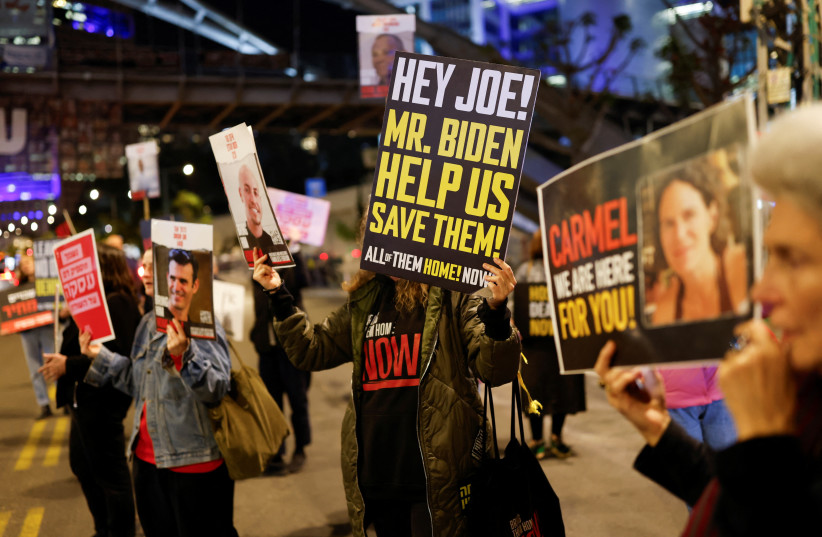The State Department maintained that Monday's United Nations Security Council resolution calling for an immediate ceasefire is non-binding in that it does not impose any new obligations on Israel - but it should be respected, Department spokesman Matthew Miller said Tuesday.
Miller's explanation of this confused reporters in the briefing room. Though it is non-binding, the resolution carries weight and should be implemented, Miller said, which is the Department's belief when it comes to UNSC resolutions.
The components of the resolution that the US supports - a ceasefire and hostage release - should be pursued, though the administration has said these will ultimately be secured through negotiations, not a resolution from the UN.
Miller discredited Prime Minister Benjamin Netanyahu who is pushing the notion that Hamas backed out of the most recent deal because of the UNSC resolution.
Hamas' response to the deal was prepared before the UNSC vote, not after it, Miller said.

The US is not going to "engage in rhetorical distractions on this issue. We are going to continue to work to try to bring the hostages home," Miller said.
Questions surround consequences of possible Israeli operation in Rafah
Questions remain about ramifications should Israel go against the US' advice against a full-scale ground operation in Rafah as Miller - and other administration officials - stay tight-lipped about military funding and defense articles being conditioned on Israel's operation there.
"We have been making clear that this kind of operation is not in Israel's interest, let alone in the interest of the Palestinian people," Miller said. "So when you speak to ramifications, those are the type of ramifications that we're worried about for Israel, and that's why we wanted to have this meeting to present to them what we think is a better alternative."
Miller rejected the notion that the administration's advice could be construed as US involvement through military planning.
"We're not in with them planning exact military operations, but we have always offered them advice about what we have believed the best way to go about this operation," Miller said.
Israel has been successful in taking out some of the leadership of the Hamas battalions and in taking out fighters either by killing them on the battlefield or arresting them, Miller said.
But to prevent Hamas from creating new battalions, Israel must put forward a path for the Palestinian people's legitimate aspirations.
Miller referenced US counterterrorism experience, saying while Israel can accomplish counterterrorism objectives on the battlefield, another security force must be in place to keep the Hamas battalions from reforming.
"We have made very clear that the ultimate objective, Israel's ultimate, long term security objectives can only be accomplished not just through a military campaign, but through some kind of political resolution with the Palestinian people," Miller said, a resolution to which Hamas has no right to political participation in, Miller added.
Miller acknowledged the 12 Palestinians who died by drowning while trying to reach aid that was airdropped along the coast of Gaza. It's not clear if these specific airdrops were conducted by the US or its partners.
"It's a tragedy that they felt so desperate that they had to swim out to the ocean to try to retrieve it in the first place. No one should have to do that. No one should have to put themselves at risk to try to get food and water and medicine for their families. It should just be there," Miller said.
Miller said the airdrops have always been a supplement to the humanitarian assistance that goes through land, not a replacement. Aid going in over land needs to be increased and sustained, he said.
However, Miller said there was a lot of aid going into Gaza prior to October 7, and anyone saying Hamas doesn't also bear some responsibility for the inability to get aid into Gaza is ignoring the reality on the ground and the fact that Hamas launched the war in the first place.
